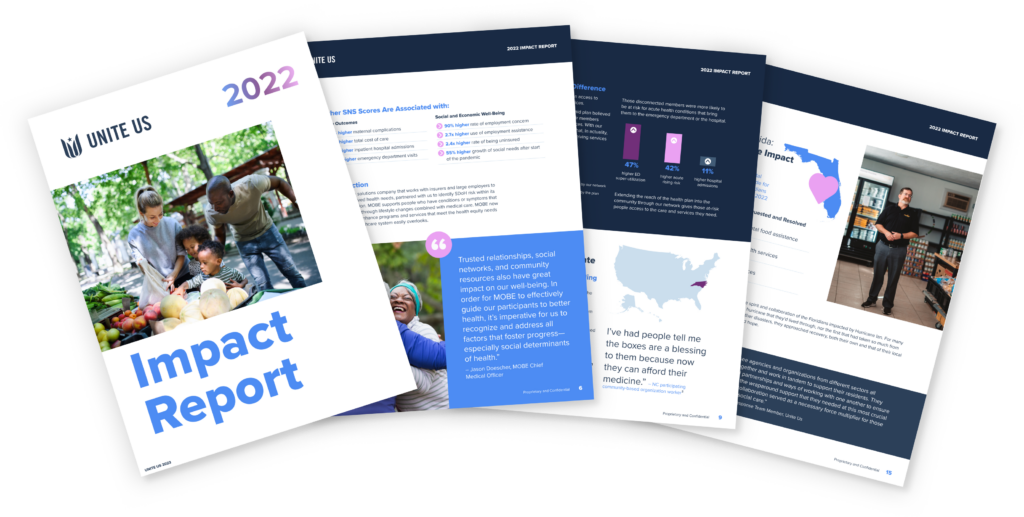
Applying CMS’ Community Health Access and Rural Transformation (CHART) Model to Bolster Health
Amid a growing recognition that rural communities have inequitable access to services, any reform should build upon existing community infrastructure and include participation from all health, human, and social service leaders. Improved collaboration between rural communities and health systems accelerates innovative solutions, and has the potential to create more sustainable and equitable healthcare system transformation. It’s important that innovations and policies are informed by the communities they serve, so they more likely meet rural regions’ unique needs, and support residents who have long suffered from inadequate resources and disparate health outcomes in comparison to their urban counterparts.
The Center for Medicare and Medicaid Services (CMS) Community Health Access and Rural Transformation (CHART) model is an important opportunity to advance community-based health transformation in rural areas and provide federal funding for health system reform. Unite Us can support care coordination across the continuum of care through our infrastructure, facilitate early and proactive care through screening for the social determinants of health, bring together trusted and local community providers, and empower communities with data and outcomes tracking that can identify resource gaps and disparities.
Unique social determinants in rural areas
While people with complex clinical and social needs who live in rural areas encounter similar challenges to people living in urban areas–such as poverty, food insecurity, homelessness, and lack of transportation–these challenges are exacerbated by limited infrastructure and resources.
A good example in rural America is transportation. Nearly two million rural residents are without access to a car, and public transportation services are often severely limited and underfunded. Even with access to transportation, individuals may have to travel far greater distances than in urban areas to reach hospitals, doctors’ offices, and emergency and social services. The result is an increased likelihood of delaying or forgoing necessary appointments, preventive care, and health maintenance activities.
These social determinants contribute to worsened health outcomes; a study from the CDC reveals that the 46 million individuals living in rural areas are at greater risk of dying from five leading causes – heart disease, cancer, unintentional injuries, chronic lower-respiratory disease, and stroke – than their urban counterparts. Though health leaders agree hospitals are often best positioned to address social determinants in communities, they are limited by the lack of direct reimbursement for these services needed for upfront investment.
Even more, racial and ethnic minorities living in rural areas encounter several systemic inequities that impact use of health services and overall well-being – currently, 1 in 5 rural residents identify as Black, Hispanic, American Indian/Alaska Native and Asian American/Pacific Islander. Though racial and ethnic disparities may be invisible in the rural context, minority populations face real inequities in areas such as access to education and broadband, insurance status, and income levels.
A proven solution for rural communities
Unite Us believes that some of the most promising opportunities and approaches to improve care delivery in rural areas leverage the fact that these communities have a unique social fabric, with community members relying on each other, and trusted local leaders, for support. Our rural engagement strategy is tailored to meet the needs of the community through: in-person community sessions and meetings, distribution of paper flyers rather than inaccessible digital materials, and forging relationships with community champions (such as United Ways).
Our team is dedicated to improve our technology and adapt our engagement strategy to make health and social care more accessible, equitable, and outcomes-focused.
- Our statewide network in North Carolina covers a geographic area that is 80% rural. In the eight-county area surrounding Chowan, which has a population of less than 150,000 people, our team adjusted our engagement strategy to understand the community’s distinct needs and brought together 50+ organizations connecting residents to resources.
- Our Unite West Virginia network includes rural counties in the Appalachian Mountains and the Eastern Panhandle, with one county having a total population of 8,505. To reach the most rural individuals, we teamed up with Family Resource Networks, a local and trusted non-profit, and onboarded community-based providers.
“The very first time [one of our team members] made a referral in the Unite Us Platform to another organization, she sent a joyful email saying ‘I just made my first referral to another organization. It was a woman who also needed help with housing and was afraid she would be evicted. I sent her to this other organization, all within the platform!’ She was so thrilled… it made all of us realize: wow, there’s something here.”
– Glenn Wise, Program Director, Manna Food Bank, North Carolina
Rural health system transformation is underway
At Unite Us, we encourage the continued adoption of new policies and programs that build a sustainable foundation for care delivery in rural communities. First, our team encourages investments in building a local workforce to help solve doctor and nurse shortages, a critical issue in many rural communities. This means not only investing early in the recruitment of students from rural areas into health profession programs, but also supporting reimbursement flexibility for alternative providers such as nurse practitioners, physician assistants, and community health workers which can fill vital primary care roles in their communities. Telehealth is also an increasingly powerful tool that can supplement local workforce limitations and support rural patients and providers. Telehealth services connect patients with specialists located elsewhere and can provide needed peer support to rural health professionals who often work in isolated environments. Health systems and policy makers should continue to expand reimbursement for telehealth, and invest heavily in rural broadband infrastructure to ensure rural communities stay connected.
It is critical, too, that new value-based payment models are adapted to the unique characteristics of rural areas like small population size and high hospital operating costs. For example, down-side models, where providers refund payers if costs exceed a benchmark, are particularly threatening for rural hospitals operating on thin margins. The CHART payment model, however, provides much needed flexibility for rural hospitals and is a great example of tailoring funding policies for the rural context.
At Unite Us, we are eager to team up with health systems, non-profits, state and local governments and other stakeholders to develop and implement systems of community-based and integrated care in rural communities. Please reach out if your organization is interested in partnering with Unite Us on your CHART application.
About Unite Us
Unite Us is the nation’s leading software company bringing sectors together to improve the health and well-being of communities. We drive the collaboration to predict, deliver, and pay for services that impact whole-person health. Through Unite Us’ national network and software, community-based organizations, government agencies, and healthcare organizations are all connected to better collaborate to meet the needs of the individuals in their communities.



